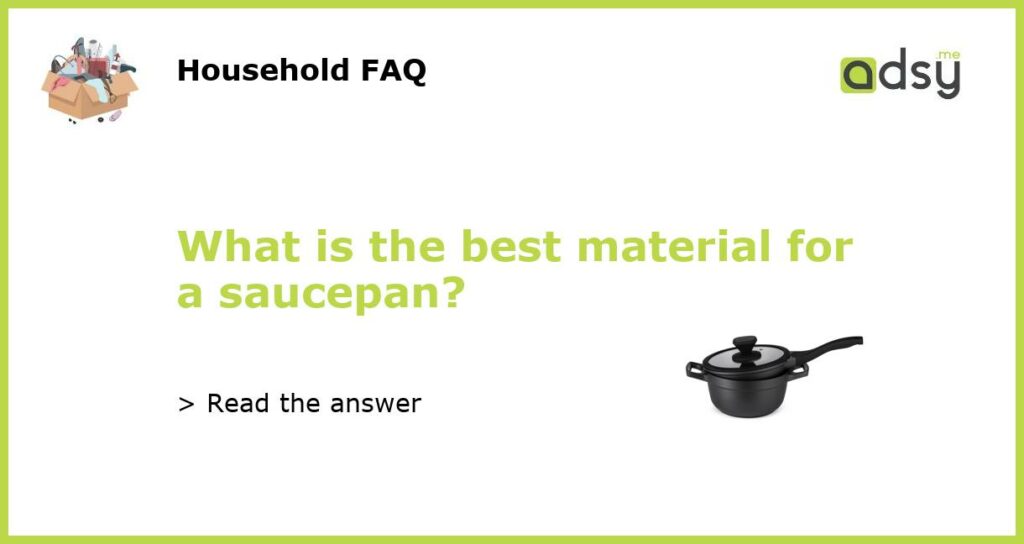Stainless Steel: The Top Choice for Saucepan Material
When it comes to choosing the best material for a saucepan, stainless steel is the top choice for many reasons. Not only is it durable and long-lasting, but it also conducts heat evenly and efficiently. Stainless steel is resistant to rust, corrosion, and staining, making it a low-maintenance option in the kitchen. Additionally, stainless steel saucepans are non-reactive, meaning they won’t alter the flavor or color of your food. This makes them a versatile and practical choice for every cook.
Cast Iron: A Classic and Reliable Option
Cast iron saucepans have been a staple in kitchens for centuries, and for good reason. This material is known for its excellent heat retention, ensuring that the pan stays hot even when cooking at low temperatures. Cast iron saucepans are perfect for slow cooking, simmering, and braising. They are also incredibly durable and can withstand high heat. However, it’s important to note that cast iron requires special care to prevent rust, and it can be quite heavy.
Copper: The Professional Chef’s Choice
Copper saucepans are a favorite among professional chefs due to their exceptional heat conductivity. Copper conducts heat rapidly and evenly, allowing for precise temperature control. This material is perfect for delicate recipes that require precise heating, such as sauces and custards. Copper saucepans also offer a stunning aesthetic appeal with their shiny and stylish exterior. However, copper saucepans tend to be quite expensive, require regular polishing to maintain their appearance, and may react with certain acidic foods if not properly lined.
Non-Stick Coated: Convenience and Easy Cleanup
Non-stick coated saucepans have gained popularity in recent years due to their convenience and easy cleanup. These saucepans are typically made from aluminum or stainless steel with a non-stick coating on the interior. The non-stick coating prevents food from sticking to the pan, reducing the need for excessive oil or butter during cooking. This makes non-stick coated saucepans a healthier option for those watching their fat intake. However, it’s important to note that non-stick coatings can wear off over time and may not be as durable as other materials.
Hard-Anodized Aluminum: A Lightweight and Durable Choice
Hard-anodized aluminum saucepans are a popular choice for those seeking a lightweight and durable option. This material is created by subjecting aluminum to an electrolytic process, resulting in a hardened surface that is resistant to scratching, corrosion, and warping. Hard-anodized aluminum saucepans offer excellent heat distribution and retention, making them ideal for everyday cooking. They are also relatively easy to clean and maintain. However, it’s important to ensure that the saucepan is not made with cheap or thin aluminum, as this can result in poor heat distribution and potential warping.






